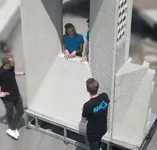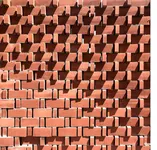Climate-Aware Robotic Envelopes (CAE)

Robotically Fabricated, Site-Specific Building Envelopes for Climate-Resilient Urban Environments
The objectives of this research are to conceptualise and establish a design methodology for climate-resilient building envelopes in urban environments using differentiated geometric configurations informed by climatic simulation using mono-material constructions. This approach entails primarily exploring design strategies for the robotic fabrication of such tailor-made adaptive designs for both in situ and prefabrication scenarios. This research is conducted using an experimental, case study-based methodology based on multiple design iterations on a scaled robotic setup that investigates a) architectural design principles for differentiated geometries for mono-material building envelopes, b) the development of a computational design tool to explore site-specific solutions informed by climate-aware criteria, and c) the exploration and validation using robotic fabrication workflows with varying material systems such as brick assembly or additive manufacturing (AM) processes.
Collaborators
Funding programme
- The research is embedded within the interdisciplinary research and development project “Climate Active Envelopes”, funded by the Bayerische Forschungsstiftung (BFS) (2022-2025)
In cooperation with
Recognition
In association with
- Collaborative Research Centre Transregio 277 "Additive Manufacturing in Construction" supported by the German Research Foundation (DFG) – project number 414265976
2022-2024
Duration
- 2020-2024
Publications
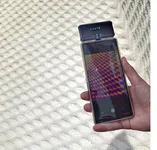
Revisiting Breuer through Additive Manufacturing: Passive solar-control design strategies for bespoke concrete building envelope elements
Fleckenstein, J.; F. Bertagna, V. Piccioni, M. Fechner, M. Düpree, P. D'Acunto, K. Dörfler
Dokonal, W, Hirschberg, U and Wurzer, G (eds.), Digital Design Reconsidered - Proceedings of the 41st Conference on Education and Research in Computer Aided Architectural Design in Europe (eCAADe 2023) - Volume 1, Graz, 20-22 September 2023, pp. 527–538 (Status: published)
2023
DOI PDF
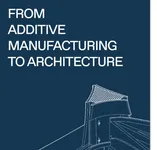
From Additive Manufacturing to Architecture: an explorative design project.
H. Blocksdorf, K. Dörfler, N. Hack, M. Scheible, J. Fleckenstein, A. Niemann, F. Nagler
Technische Universität München, Technische Universität Braunchweig, Additive Manufacturing in Construction AMC TRR 277 (Eds.)
2023
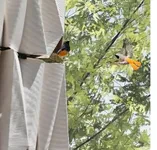
Additively Manufactured Urban Multispecies Facades for Building Renovation
Larikova, I; J. Fleckenstein, A. Chokhachian, T. Auer, W. Weisser and K. Dörfler
Journal of Facade Design and Engineering (Status: published)
2022
DOI PDF
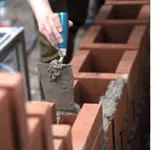
Climate Active Bricks:
How robotic fabrication technology can contribute to improving urban microclimates
Fleckenstein, J.; P. Molter, A. Chokhachian and K. Dörfler
Review TUM Department of Architecture #3/2020
2021
